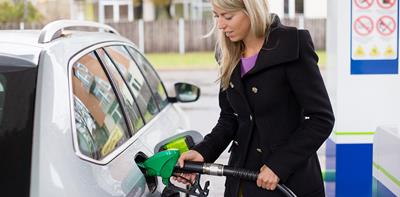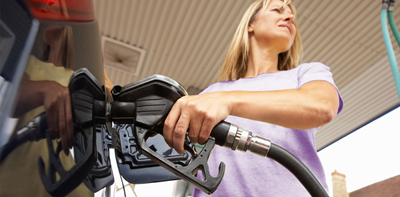
A car is one of the most expensive things any of us will ever buy, so you would think we would all do what we could to ensure it lasts as long as possible.
However, many drivers make a host of avoidable mistakes which actually damage the lifespan of our motors.
Ignoring car maintenance
Roger Griggs, communications director at Kwik Fit, says nearly one in ten drivers never check their tyre pressure, while others only bother when a warning light comes on.
He continues: “But ensuring your tyres are at the correct pressure will maximise their lifespan as under or over-inflated tyres wear more quickly - and will also have their road holding ability compromised.
“When checking their pressure, drivers should also check that the tyres are wearing evenly – if not, their wheels may be out of alignment. The tyres could end up being illegal by going bald on one edge while having plenty of tread elsewhere.”
Tyres certainly aren’t the only things drivers should be checking though. You should also check your fluid levels for things like coolant, wiper fluid and antifreeze.
Another good idea is to change the oil and oil filters regularly. Old oil filters can hold onto oil and dirt particles, which then end up being mixed in with the clean oil and shortens the life of the engine.
Pedal to the metal
The way that you drive the car will make a big difference to how long it will last too. The key here is not to be too rough with it.
Griggs says: “Certain driving habits can have an impact on wear – aggressive acceleration and braking will not only increase fuel consumption, but can also be harsher on the brake system, causing discs and pads to wear out more quickly.”
In other words, don’t be quite so keen to get your foot to the floor; you aren’t Lewis Hamilton.
Don’t ignore your handbrake
If you are the sort of motorist that prefers to hold the biting point when on a hill rather than stick on the handbrake, you aren’t alone.
It’s not the smartest move though if you want to extend the lifespan of your car.
Griggs says: “Many drivers neglect to use their handbrake on a hill and instead hold their car on the clutch. It’s worth remembering that a new clutch is a lot more expensive than replacing a set of brake pads.”
Running on very little fuel
What’s your reaction when the warning light pings on, advising you that you are running low on fuel? Many motorists carry on regardless, believing they will still be able to clear their journey without running out.
It’s a risky game to play, and not just because of the potential of ending up by the side of the road. When you run low on fuel, your fuel pump motor sucks in air which heats it up and then wears out your fuel pump early.
Keeping your fuel tank above a quarter full is therefore a good idea.
Ignoring warning signs
It’s not just the fuel light though. If you want your motor to live as long as possible then you need to keep an eye out for all warning signs, whether they are on the dashboard or simply in the way your car feels.
As Griggs says: “If drivers can hear an unusual noise or if their car is handling oddly, they shouldn’t ignore it hoping it will go away – a problem left will invariably end up costing more money to fix than if it’s sorted out straight away.”

